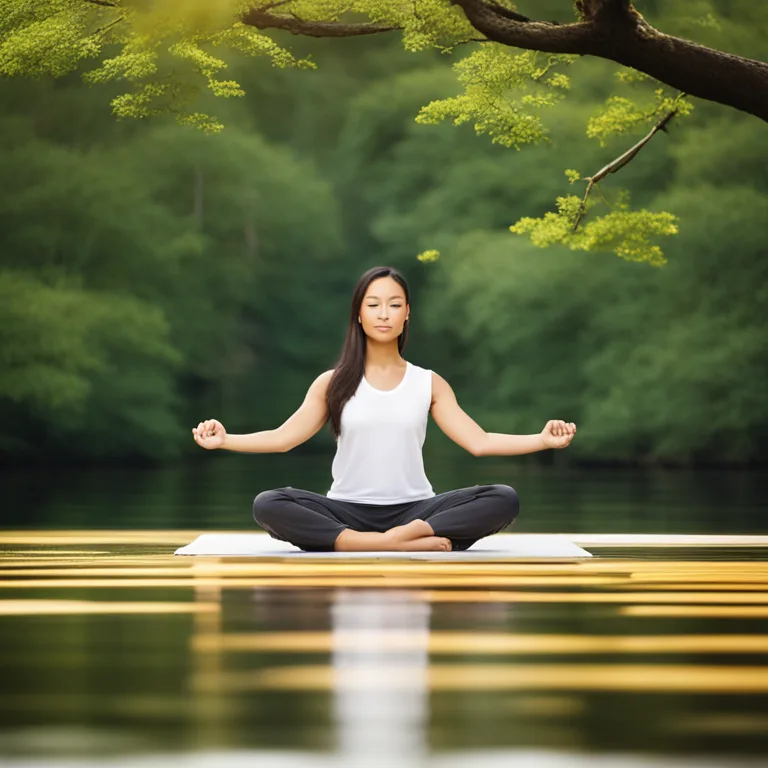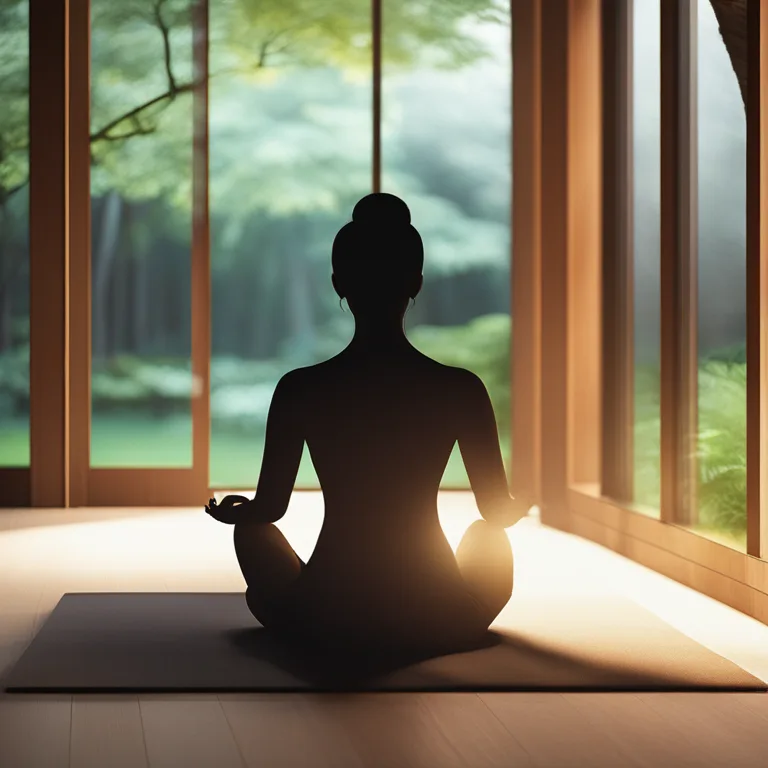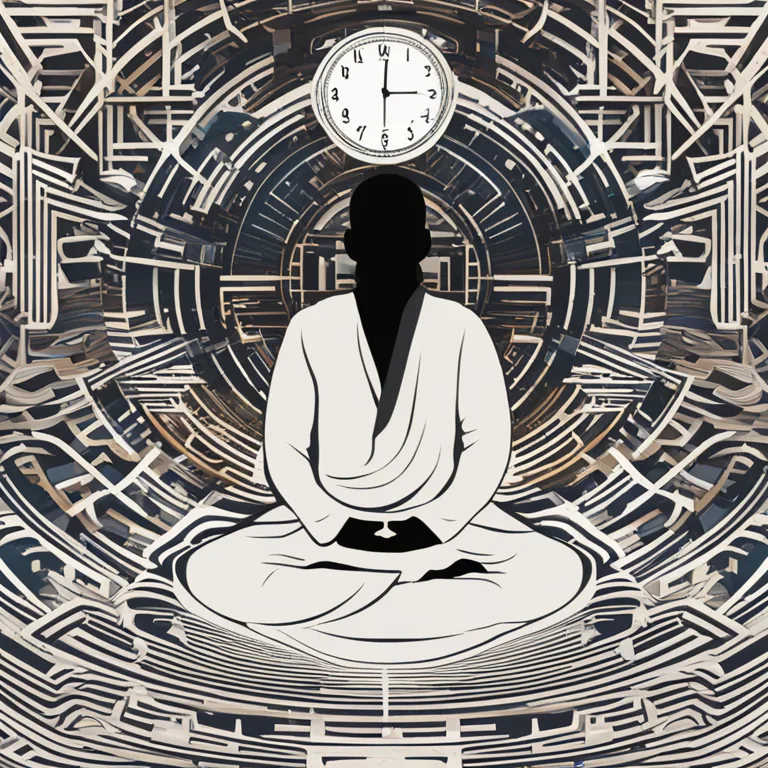
Meditation Techniques for Anxiety
Discover effective meditation practices to manage and reduce anxiety, promoting mental clarity and inner peace.
article by Hina Kurosawa
Introduction to Anxiety and Meditation
Anxiety is a common, yet often debilitating experience that affects many, influencing their day-to-day lives. With the world constantly on the move, finding reprieve in the storm of thoughts and worries is crucial. Meditation stands out as a valuable tool, offering a pathway to tranquility. Its efficacy is well-recorded, with studies supporting its role in easing stress and anxiety symptoms. As we advance into 2024, an era of increased digital connectivity and consequently, mental overstimulation, the application of meditation is more relevant than ever. Through its various forms, meditation encourages the practitioner to cultivate a deep sense of awareness and presence, thereby mitigating the intrusive nature of anxious thoughts.

Mindfulness Meditation: Being in the Now
Mindfulness Meditation teaches us to ground ourselves in the present moment. The core principle is simple: observe thoughts, feelings, and sensations without judgment. Start with around 5 minutes daily, gradually increasing the duration. Find a quiet space, sit comfortably, and focus on your breath. When thoughts arise, acknowledge them, and gently bring your attention back to the breath. Apps and guided sessions, increasingly popular in 2024, can assist beginners in establishing a steady practice. Consistency in mindfulness meditation has been linked to reduced rumination, characteristic of anxiety, fostering a calm mind.

Body Scan Meditation: Awareness and Relaxation
Body Scan Meditation is a method promoting full-body awareness and has shown potential in reducing anxiety. This technique involves mentally scanning your body, part by part, observing any sensations or tensions. Done seated or lying down, the practice might begin at the feet, moving upwards to the crown of the head. By paying attention to bodily sensations, the mind is drawn away from stress-inducing thoughts. The intentional relaxation of each body part also helps lower physical manifestations of anxiety. In an increasingly sedentary society, this type of meditation also counters physical stagnancy, which can exacerbate anxiety.

Mantra Meditation: The Power of Repetition
Mantra Meditation uses the repetition of a word or phrase to focus the mind. Choose a mantra that holds personal significance or use traditional ones like "Om" or "Peace". Repeat your mantra silently, allowing its rhythm to anchor your thoughts. This repetition is a tool to delve deeper into a meditative state, tuning out the external noise that marks the modern world. The repetitive nature can help manage anxiety by providing a mental reset away from spiraling thoughts. The mantra serves as a life raft in the ever-flowing river of concerns that define anxiety.

Progressive Relaxation: Tension Release Technique
Progressive Relaxation, also known as Progressive Muscle Relaxation, is particularly beneficial for those who hold tension in their bodies. It involves tensing and then relaxing different muscle groups, promoting physical and mental relaxation. The contrast between tension and relaxation makes practitioners more aware of bodily stress and cultivates greater control over the relaxation response. Given the recent upsurge in remote working environments, this technique aids in dissipating stress that accumulates from prolonged periods of inactivity or suboptimal ergonomic setups.
Yoga Meditation: Movement Melded with Mindfulness
Yoga Meditation blends physical postures, breath control, and meditative focus. As the popularity of yoga endures through 2024, this form of meditation has become increasingly accessible through virtual classes and workshops. Often, the rhythmic flow of movement combined with focused breathing can provide an embodied meditation experience that helps to ease anxiety. Also, Yoga Nidra, often referred to as 'yogic sleep', is a form of meditative practice that induces a state of deep relaxation while maintaining consciousness, proving to be a potent antidote to anxiety.
Conclusion: A Practice for Peace
Incorporating meditation into your daily life can be a transformative practice that alleviates anxiety and cultivates a sense of peace. While there are numerous techniques available, finding one that resonates with you is key. With growing societal pressures and technological advancements that demand our continuous attention, meditation stands as a bastion for maintaining mental equilibrium. Experiment with these practices to discover how meditation can serve as your sanctuary from anxiety.
Published: 12/20/2023
Modified: 12/20/2023
More predictions
Come back here soon to learn more about yourself and your future


Unlocking Meditation Techniques
Discover various meditation techniques to enhance mindfulness and spiritual well-being. This article introduces a range of practices suitable for both beginners and seasoned practitioners.


Calming The Mind With Meditation
Discover effective meditation techniques to ease your mind and promote serenity in your daily life.


Meditation Techniques & Anxiety
Discover effective meditation practices to soothe anxiety and foster a sense of peace in your daily life.